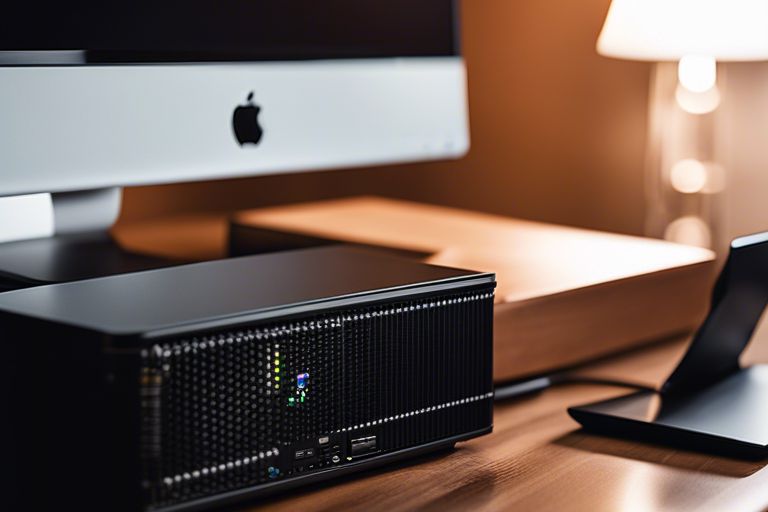It’s crucial for you, as a journalist, to protect your sensitive information and sources while working in a digital age filled with surveillance and hacking threats. In this guide, we will explore the top security products and tools that can safeguard your data and communications, ensuring that you can pursue the truth without compromising your safety.
Key Takeaways:
- Assess your needs: Before choosing security products, assess the specific risks and threats faced by journalists, such as online surveillance, physical attacks, or information theft.
- Use encrypted communication: Utilize encrypted messaging apps and email services to protect sensitive communications and data from interception by malicious actors.
- Consider physical security: Invest in physical security products like encrypted USB drives or secure backpacks to safeguard equipment and data when working in high-risk environments.
Threats to Journalists
While fear is not a journalist’s constant companion, you must always be aware of the potential threats that come with the profession. These threats can vary from physical safety concerns to digital security risks.
Physical Safety Concerns
On your quest for the truth, you may encounter situations where your physical safety is at risk. Covering protests, war zones, or investigating powerful individuals can expose you to danger. It’s crucial to be prepared and equipped with the necessary skills and tools to protect yourself in risky environments.
Digital Security Risks
The digital world poses its own set of threats to journalists. From hacking attempts to surveillance and data breaches, your online activities can make you vulnerable to attacks that compromise your privacy and work. It’s vital to safeguard your digital presence by using secure communication channels, encrypting sensitive information, and practicing good cyber hygiene.
The digital landscape is constantly evolving, and new threats emerge regularly. For instance, phishing attacks, malware infections, and social engineering tactics are common methods used by malicious actors to target journalists and compromise their digital security. Staying informed about the latest cybersecurity trends and best practices is vital to protect yourself and your work from potential threats.
Essential Security Tools
Little do you know that having crucial security tools is crucial for safeguarding your work as a journalist. These tools can help protect your communication, data, and online activities from prying eyes. Here are some must-have security tools that every journalist should consider using.
Encryption Software for Secure Communication
Security encryption software is a vital tool for ensuring your communications remain confidential. By encrypting your messages and files, you can prevent unauthorized access and protect sensitive information from being intercepted. Utilizing encryption software adds an extra layer of security to your communication channels, giving you peace of mind when sharing important details with your sources and colleagues.
Password Managers for Strong Authentication
Communication with sources and colleagues can involve sharing sensitive information, and you need to ensure your accounts are secure. Password managers can help you create and store complex, unique passwords for each of your online accounts. This way, you can enhance your digital security by using strong, varied passwords without the hassle of remembering them all.
Strong, secure passwords are crucial for protecting your online accounts from hacking attempts and unauthorized access. Remembering multiple complex passwords can be challenging, but with a password manager, you can store all your passwords in one secure place. This not only simplifies your digital life but also strengthens your defenses against potential cyber threats.
VPNs for Anonymous Browsing
For journalists seeking anonymity and privacy online, using a Virtual Private Network (VPN) is a game-changer. A VPN encrypts your internet connection and routes it through a remote server, masking your IP address and location. This adds a layer of anonymity to your online activities, making it harder for third parties to track your movements and access your data.
For journalists working on sensitive stories or researching controversial topics, VPNs are invaluable tools for maintaining online privacy and security. By using a VPN, you can browse the internet anonymously, access geo-blocked content, and protect your data from potential surveillance or hacking attempts. With the increasing threats to online privacy, having a reliable VPN is crucial for safeguarding your digital footprint.
Protecting Your Digital Footprint
Once again, if you’re a journalist working in the digital realm, protecting your digital footprint is crucial. You want to ensure that your online activities are shielded from prying eyes and potential threats. To assist you in this endeavor, you can refer to the GCA Cybersecurity Toolkit for Journalists | Sponsored by … for comprehensive guidance on securing your digital presence.
Secure Search Engines and Browsers
Search engines and browsers are gateways to the online world, but they can also track your every move. To safeguard your searches and browsing history, opt for secure search engines like DuckDuckGo or Startpage, which prioritize user privacy and do not store or track your searches.
Privacy-Focused Email Services
Ditch mainstream email services that mine your data for advertising purposes. Instead, consider using privacy-focused email services such as ProtonMail or Tutanota. These services offer end-to-end encryption, ensuring that only you and the intended recipient can read your emails.
Digital communication is a critical aspect of a journalist’s work, and keeping your email correspondence secure is paramount in protecting sensitive information and sources.
Anonymizing Your Online Presence
Your online presence can reveal a lot about you, so it’s necessary to take steps to anonymize your activities. Using tools like Tor Browser or a VPN (Virtual Private Network) can help disguise your IP address and encrypt your internet connection, making it harder for third parties to track your online movements.
By anonymizing your online presence, you can browse the web with increased privacy and security, minimizing the risk of exposure to malicious actors or unwanted surveillance.
Understanding
Understanding the importance of maintaining a secure and private digital footprint is fundamental for journalists operating in today’s high-risk media landscape. By implementing these recommended security products and practices, you can fortify your defenses against potential threats and safeguard the integrity of your work.
Staying Safe in the Field
All journalists face risks when reporting on sensitive topics, but there are ways to help ensure your safety while in the field. From secure communication apps to personal safety devices and self-defense techniques, being prepared can make a crucial difference in protecting yourself.
Secure Communication Apps for Reporting
With the rise of digital surveillance, using secure communication apps is important for protecting your sensitive information. Apps like Signal, Wickr, and Telegram offer end-to-end encryption, ensuring that your messages, calls, and data remain private and secure. By using these tools, you can communicate with sources and colleagues without the fear of interception by malicious actors.
Personal Safety Devices for Journalists
Communication is key when you’re out in the field, and having personal safety devices can provide an added layer of security. Devices like personal alarms, GPS trackers, and emergency SOS buttons can help you alert others in case of danger or threats. By carrying these devices with you, you have a quick and discreet way to call for help in emergencies.
Reporting on sensitive issues or in conflict zones can put you at risk, and having the right tools at your disposal can make all the difference in staying safe.
Situational Awareness and Self-Defense
Personal safety starts with being aware of your surroundings and knowing how to defend yourself if necessary. Situational awareness involves staying alert to potential risks and understanding how to de-escalate or avoid dangerous situations. Additionally, self-defense training can empower you to protect yourself in case of physical threats. By honing these skills, you can better navigate challenging environments and protect yourself while reporting.
Personal safety goes beyond just physical protection; it’s about being prepared and vigilant in any situation you may encounter in the field.
Cybersecurity Best Practices
To ensure your digital security as a journalist, it’s important to follow the best cybersecurity practices. You can find a comprehensive list of security tools for journalists on Digital Security.
Password Hygiene and Two-Factor Authentication
Best security practices begin with strong password hygiene and the use of two-factor authentication (2FA). Ensure you are using unique, complex passwords for each of your accounts and consider using a reputable password manager to help you generate and store these passwords securely. Additionally, enable 2FA whenever possible to add an extra layer of protection to your online accounts.
Regular Software Updates and Patching
With the increasing threats in the digital landscape, it’s crucial to stay on top of regular software updates and patching. Updates often contain vital security patches that fix vulnerabilities in the software. By keeping your operating system, applications, and security software up to date, you can reduce the risk of being targeted by cyber attacks.
The importance of regular software updates and patching cannot be overstated. Hackers are constantly looking for vulnerabilities in software to exploit, and outdated software is a common target. By staying vigilant and updating your software regularly, you are actively strengthening your digital defenses and protecting your sensitive information.
Safe Data Storage and Backup
Backup your data regularly to ensure that you never lose important information due to cyber incidents or hardware failures. Consider using encrypted external hard drives, cloud storage services with strong security measures, or dedicated backup solutions to keep your data safe. Having multiple backups in different locations adds an extra layer of security to your valuable data.
Safe data storage and backup practices are important for journalists working with sensitive information. By implementing robust backup strategies and securing your data with encryption, you can safeguard against data loss and unauthorized access. Make it a routine to back up your data frequently to avoid any potential setbacks.
Advanced Security Measures
Many journalists need to take advanced security measures to protect themselves and their sources. Here are some of the most effective methods you can employ:
Using Tor and Onion Routing
| For | anonymizing your internet traffic and protecting your privacy |
Implementing Zero-Knowledge Proofs
Using zero-knowledge proofs is a powerful tool for verifying information without revealing sensitive details.
Secure Dropboxes for Whistleblowers
On the dark web, you can find secure dropboxes where whistleblowers can anonymously submit sensitive information.
ZeroKnowledge
Summing up
So, when it comes to ensuring your safety as a journalist, it’s crucial to invest in the best security products. From encrypted communication devices like the Silent Pocket Faraday Bag to the discreet and powerful Emerency Rape Alarm, these tools can greatly enhance your security while on the job. Recall, your safety is paramount, and being equipped with the right products can make all the difference when navigating potentially risky situations.
FAQ
Q: What are some necessary security products for journalists?
A: Some necessary security products for journalists include encrypted messaging apps like Signal, password managers like LastPass, antivirus software like Malwarebytes, and VPNs for secure browsing.
Q: How can security products help protect journalists’ sensitive information?
A: Security products can help protect journalists’ sensitive information by encrypting communications, securing passwords, detecting and removing malware, and anonymizing internet activity through VPNs, ensuring that their data remains safe from prying eyes.
Q: Are there any free security products available for journalists?
A: Yes, there are several free security products available for journalists, such as Signal for secure messaging, Bitwarden for password management, Windows Defender for antivirus protection, and ProtonVPN for secure browsing, offering necessary protection at no cost.






